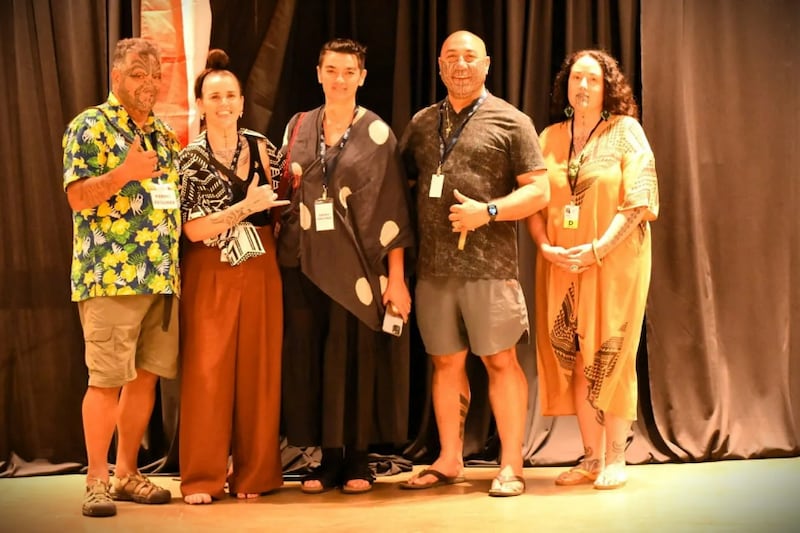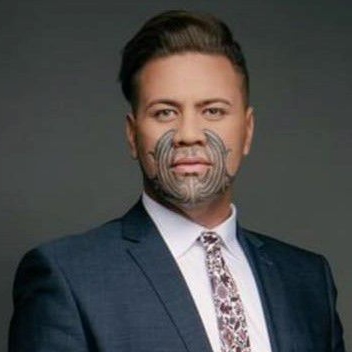Four Māori artists are using silent protests to raise the flag on an issue they say has impacted their ability to exhibit and share knowledge about their taonga.
The artists took many taonga for an exhibition at the Festival of the Pacific Arts (FestPAC) but they were stopped at the border in Hawaii because they were made out of paraoa or whalebone.
This meant some of the exhibitions had to instead display photos of the taonga with a sign above them that read ‘Permit declined’.
Pena Makoare, Rangi Kipa, Ngahina Hōhaia and Sian Montgomery-Neutze have been a part of discussions at FestPAC that goes to the core of this issue, swapping out their festival ID for a tag that reads ‘Permit Declined’ to spark conversation and to initiate a call to action.

“Rather than being seen as commodities for personal adornment, these items should be recognised for their cultural significance and the traditional process of exchanging them between nations, honouring the mana of each,” Makoare says.
Rangi Kipa says the processes are preventing the sharing of cultural knowledge among indigenous peoples, which is ironic at an event like FestPAC.
“It’s these legal frameworks that present significant challenges for Indigenous communities, hindering their ability to practice and share cultural heritage internationally,” he said
The taonga were refused entry because of the Convention of International Trade in Endangered Species of Wild Fauna and Flora (CITES), an international agreement between 184 countries including Aotearoa. Its purpose is to prevent the illegal trade and exchange of specimens of wild animals and plants.
According to its website, CITES protects over 40,900 species including roughly 6,610 species of animals, and 34,310 species of plants.
Creative NZ Māori co-chair Bonita Bingham says she supports the intention of the convention but the importance of taonga from an Indigenous worldview isn’t covered under the convention.
“We were hugely disappointed that the United States (through its Hawaiian border) denied the permit for those taonga to come in, even for exhibition. It was hugely disappointing for our artists, our curatorial team, who spent a long time trying to put these exhibitions together,” she said
Kipa also recalls a previous FestPAC where several island nations turned up with plastic versions of their taonga and cites the “irony” for a festival supposed to be celebrating the unique heritage.
Alongside Rangi Kipa and Pena Makoare, Bigham has spent time overseas in CITES forums and the United Nations lobbying and advocating for the inclusion of indigenous knowledge and practice in CITES.
Bigham says the convention, as it stands, has no consideration of the impact on indigenous people.
“We have absolutely no issue with its intent. No one wants to see rhino horns, elephant tusks and all the other material being exploited around the world or traded illegally, which puts these beautiful taonga at risk,” she said
She says the unintended consequence of the restrictions is on the resources and materials obtained through “natural attrition”. When bones of tohorā (whales) are harvested and processed, they are not being allowed through the borders, to be displayed at important kaupapa like FestPAC.




